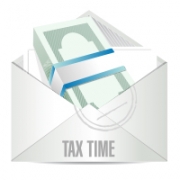The Smart Money Moves That a Gig Worker Needs to Make
- Learn how to prepare for the rollercoaster ride that comes with gig work.
- Find out why gig workers should take taxes out as they earn.
- Discover why gig workers should consider paying taxes quarterly.
- Learn about the importance of living within your means as a gig worker.
- Find out why gig workers should always keep looking for work – even during busy times.
“Gig work” is the new “bankers’ hours.” Anyone who isn’t doing it wishes that they were. Lucky enough to be a gig worker? Then you know just how good it really is. But being a successful freelancer means more than making your own hours and having as much work as you want to do. It also means you have to be smart about your money.
It’s all too easy to spend your earnings as soon as they come in. However, because you don’t have a regular income or have your taxes automatically withheld, you need to be responsible and methodical in your approach to your income. Otherwise, you’re going to take a big hit when it comes to tax time. You may find yourself without savings if and when you eventually need them. Below Fiducial offers some of the smart money management moves that can make freelancing truly rewarding.

1. Prepare for a rollercoaster ride as a gig worker.
One of the first things that every freelancer learns is that there are days where you just can’t keep up with all the business coming your way. Other days, you wonder whether you’ll ever work again. The rollercoaster is part of the experience. You have to deal with it on an emotional level as well as a financial one. Saving money every time that you earn it is essential because you are not getting a regular paycheck. However, you are getting regular bills that need to be paid. Make sure you understand what your regular expenses are and that you’ve covered them now and for the future. That way you’ll be a lot less stressed on those days and weeks when business doesn’t appear.
2. Save your taxes with each payment you receive.
If you ever worked as a W-2 employee, you know that a big chunk of your paycheck was taken out each week by your employer. As miserable as it felt when you received your first paycheck and realized exactly how much goes to Uncle Sam, it was also very nice that your taxes had already been paid when April 15th rolled around – and even nicer when you got a refund.
As a freelancer, you are responsible for paying your own taxes. The least painful way to do it is to figure out the percentage that you’re responsible for. Then, you should automatically take that percentage of every payment you receive and deposit it into a separate, dedicated tax account. Doing so means that when you have to pay your quarterly income taxes, you already have the money set aside. This is just one thing for you to check off of your to-do list.
3. Make quarterly estimated income tax payments.
It may be tempting to put off paying your taxes until April 15th each year, but doing so subjects you to interest and penalties. If you are a gig worker, you are considered self-employed. That means that you are expected to pay your federal and state income taxes on an estimated quarterly basis.
4. Live within your means, gig worker.
No matter whether you’re a W-2 employee or a freelancer, creating a realistic budget and sticking to it is one of the smartest things you can do from a money management perspective. If you know the minimum amount of money that you need for basic expenses and you know how much money you’re earning, it is much easier to make sure that you are allocating your funds wisely – including putting a certain amount away for savings and taxes.
5. Don’t stop looking for business.
Even when you feel like you can barely keep up with your work, it’s a good idea to keep your eyes and ears open and talk up your business to those in your network. As much as you may love the clients or work that are keeping you busy now, they could disappear tomorrow. You don’t want to have to start over from scratch. Always have something in the pipeline.
If you’re a freelancer and you need help with financial management, an experienced tax professional can make a big difference in your level of confidence and economic know-how. Call Fiducial at 1-866-FIDUCIAL or make an appointment at one of our office locations to discuss your situation.
Ready to book an appointment now? Click here. Know someone who might need our services? We love referrals!
For more small business COVID-19 resources, visit Fiducial’s Coronavirus Update Center to find information on SBA loans, tax updates, the Paycheck Protection Program, paid sick and family leave.








